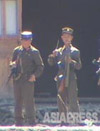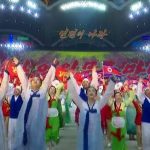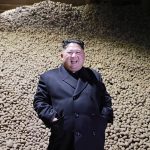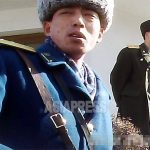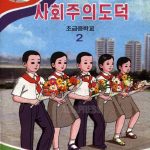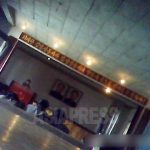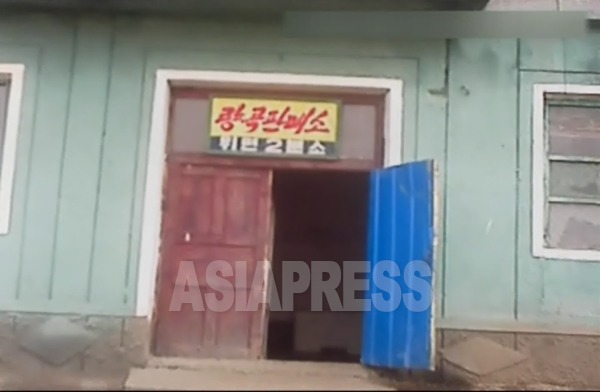
Twenty five years ago, in 1997, I frequently crossed the China-North Korea border in the Yanbian Korean Autonomous Prefecture, which is in China’s Jilin Province. I was doing reporting on the influx of a large number of starving people crossing over the Tumen River. All of them were wearing shabby clothing and they all looked emaciated. Every one of them I spoke with told me that “many people are dying of starvation because of the collapse of the (government) food distribution system.”
◆ The markets are scarier than tigers
What on earth was happening in North Korea at the time? While staying at a Chinese-Korean farm village near the Tumen River’s banks, I met with as many border crossers as I could. One elderly man, who I interviewed over the course of several days, told me, “Markets are scarier than tigers.”
With a slight grin on his face, the elderly man told me that the collapse of the food distribution system led to the appearance of black markets, which allowed people to buy and sell prohibited items like rice, corn and other foodstuff, along with medical supplies, pharmaceuticals, and even livestock. The government was no longer able to control these markets, leading to the start of the collapse of the preexisting governing system.
In 2003, the Kim Jong-un regime finally abandoned efforts to reinstate the food distribution system and legalized the black markets. These markets gradually increased in number and, based on research utilizing satellite imagery of the country, there are now anywhere between 400-500 markets in existence. North Koreans earn cash through market-related commerce, and this has allowed them to navigate their own survival. People’s quality of life improved remarkably compared to the days of the food distribution system, which ensured that most people in the country’s urban centers were able to eat three meals of white rice a day.
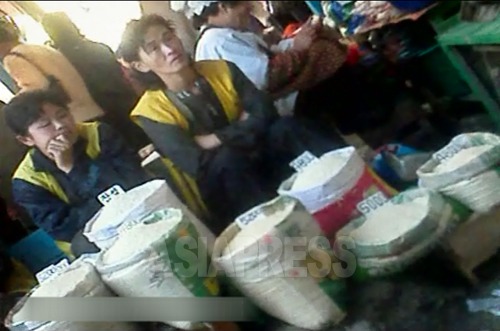
◆ The regime moves in earnest to revive the state-run food shop network
Now, however, the Kim Jong-un regime is attempting to make big changes to how food is distributed in the country. ASIAPRESS obtained evidence of this back in 2019. State-run food stores, which had been shut down, began operations again across the country, selling food at prices cheaper than in local markets. The quality of the food on sale, however, was not good and stocks were insufficient, so the food stores failed to take over the markets.
※ The Kim Jong-un tried and failed to expand its state-run food store network in 2014 as well.
With the start of the COVID-19 pandemic in January 2020, the situation changed dramatically. North Korea closed its borders, leading to a massive decrease in trade with China, and restrictions on people’s inter-regional movement along with commercial activities meant that urban dwellers no longer had steady sources of cash income.
In 2021, based on reports from ASIAPRESS reporting partners, North Korea’s state-run food stores moved from selling goods “when they’re in stock” to selling five kilograms of food per person once per month. North Koreans without sources of income welcomed the move.
North Korean authorities also gave workers several kilograms of food once per month, but, separately, also sold them food at prices cheaper than in local markets. That being said, the authorities did not offer this benefit to people who failed to come to work, or who had left their assigned place of work. There were people who believed the new system was akin to the reappearance of the old food distribution system; however, this new system was unstable because there were periods stretching over several months in which people didn’t receive even 1 gram of food, or people in different workplaces got different amounts of food.
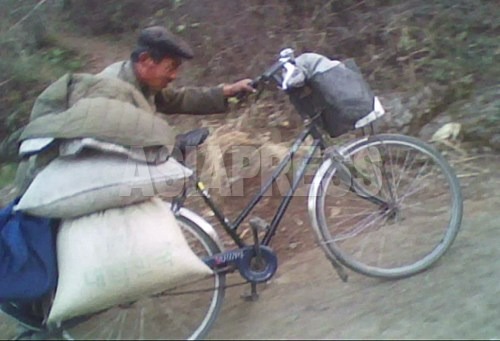
◆ Where does food sold in markets come from?
But where did the food being sold in the markets come from in the first place? Food sold wholesale in the markets include that which had been distributed to individual farmers from the harvest of collective farms along with food collective farms had stored to make money. There was also food circulating in the markets that had been siphoned off from farms by farm managers or from the military, along with food imported from abroad.
The government needed to increase the amount of food that it had under its direct control in order to exert control over the food distribution network. This past fall, the authorities closely watched collective farms to ensure that none of the food produced there was siphoned off. In September, the start of the harvest season, the military was stationed at farms to stand guard over the fields and storage facilities. Soldiers checked the baggage of people entering and leaving farm areas, and confiscated any agricultural goods they discovered.
Meanwhile, the government has been forcing food sellers in local markets to lower their prices and demanding that they submit documentation certifying where they obtained the food they are selling. ASIAPRESS reporting partners throughout the country have said that there was an announcement by the authorities in November saying, “Grain sales will be suspended in the markets in the future, with all (grain sales) to be centered at state-run food stores.”
◆ A monopoly on the food supply means government control over how people obtain calories
In my view, the Kim Jong-un regime aims to implement a state monopoly over the distribution of food by taking away control over food distribution from the markets. This is the government’s attempt to rule over how people obtain their calories. In essence, the country is reviving a food policy where the government can control the people by controlling how they obtain food.
Before the outbreak of COVID-19, the market economy exceeded 50% of total economic activity in the country, according to a general consensus among South Korean experts.
“People are working hard to earn their own living. They are not living thanks to the grave of the leader.” This kind of thinking has become the norm among North Koreans over the last 20 years. This thinking, however, is a point of anxiety for the country’s leadership.
“The markets are scarier than tigers.” - This idea has perhaps caused the Kim Jong-un regime a great deal of worry.
※ ASIAPRESS smuggles Chinese cell phones into North Korea to communicate with its reporting partners.
[N.Korea Video Report] 'Doegurikun' the urban poor who delivers grains from farms to market
- <Inside N. Korea> Two N. Koreans caught attempting to defect arrested and possibly executed by firing squad…Government says “defections will not be forgiven”
- <Interview with Two N. Korean Women> How do N. Koreans view the appearance of Kim Jong-un’s daughter, “Ju-ae”? Rumors circulate that she’s a “genius” and an “advisor” to her father
- <Inside N. Korea>RMB-KRW exchange rate sees unprecedented rise, 36% higher than 3 weeks ago…“Foreign currency has dried up now”
- Human rights situation has only worsened during Kim Jong-un’s 11 years in power ISHIMARU Jiro
- <Interview with a N. Korean> (1) “It’s ridiculous that the government launches missiles while its people remain starving”
- <Inside N. Korea>What happened to N. Korea’s cash vouchers “tonpyo”?
